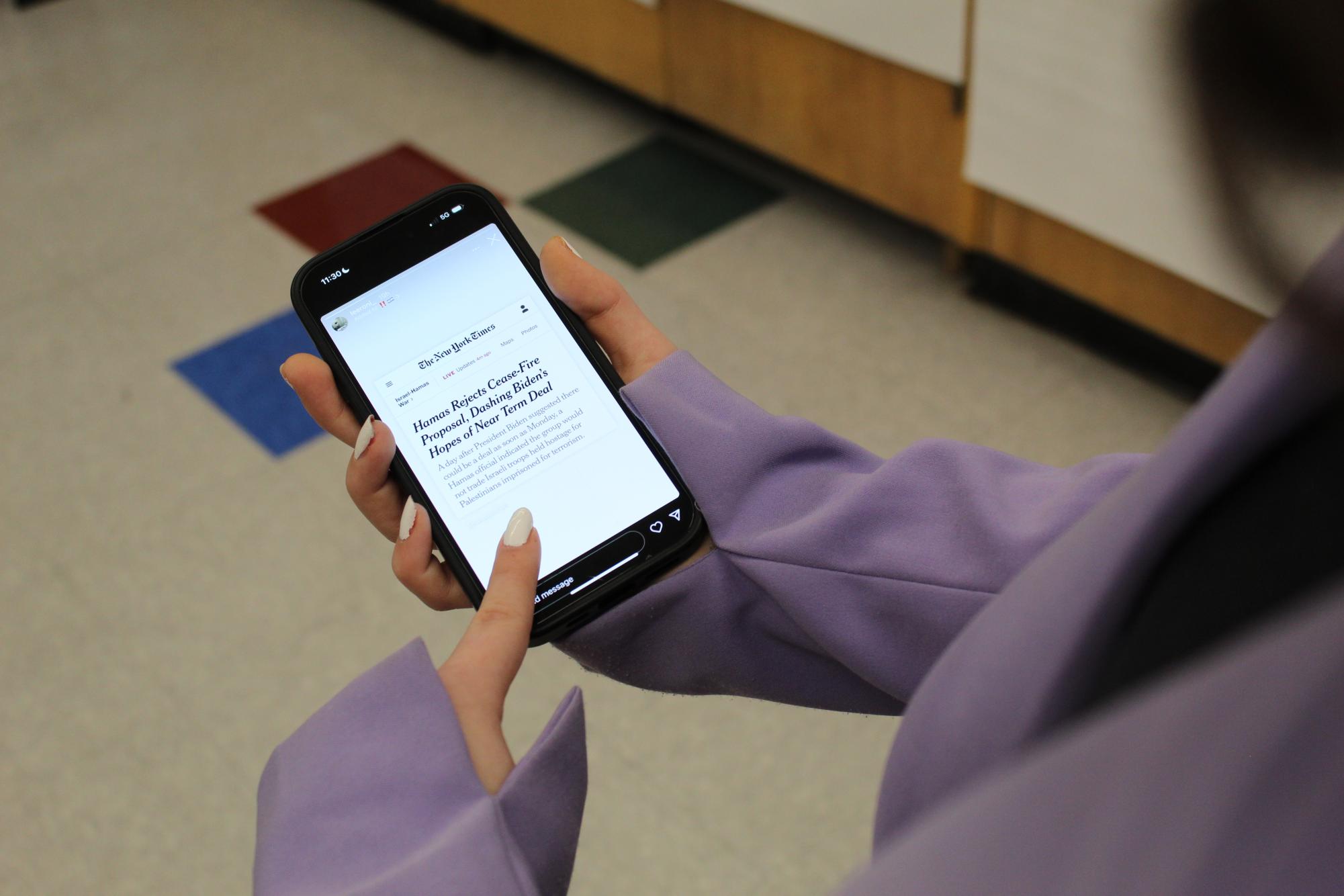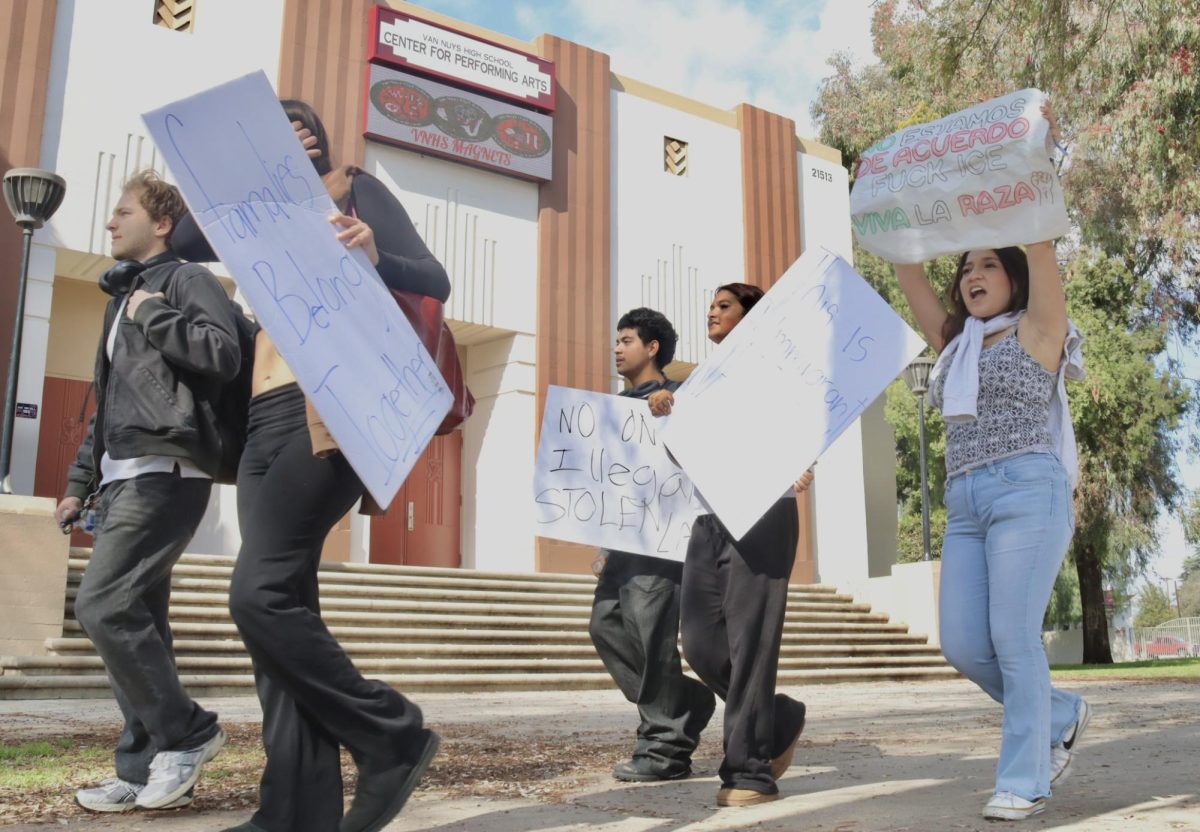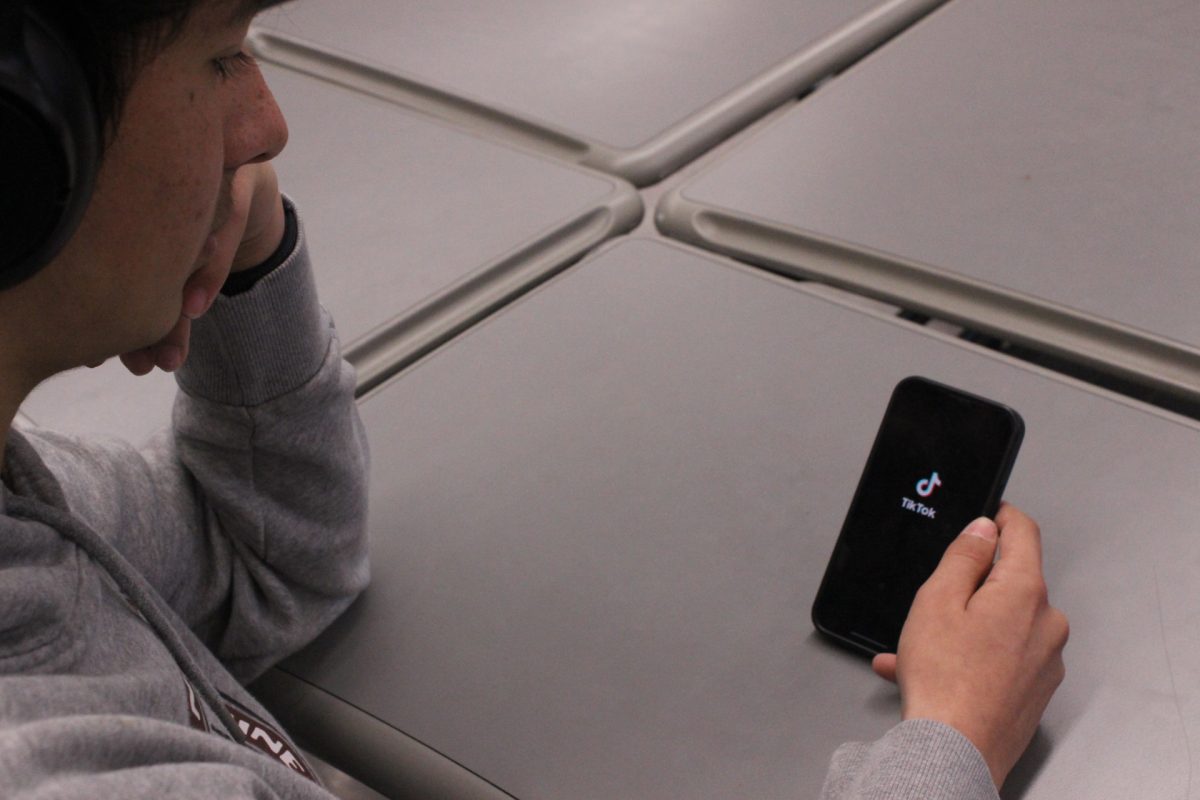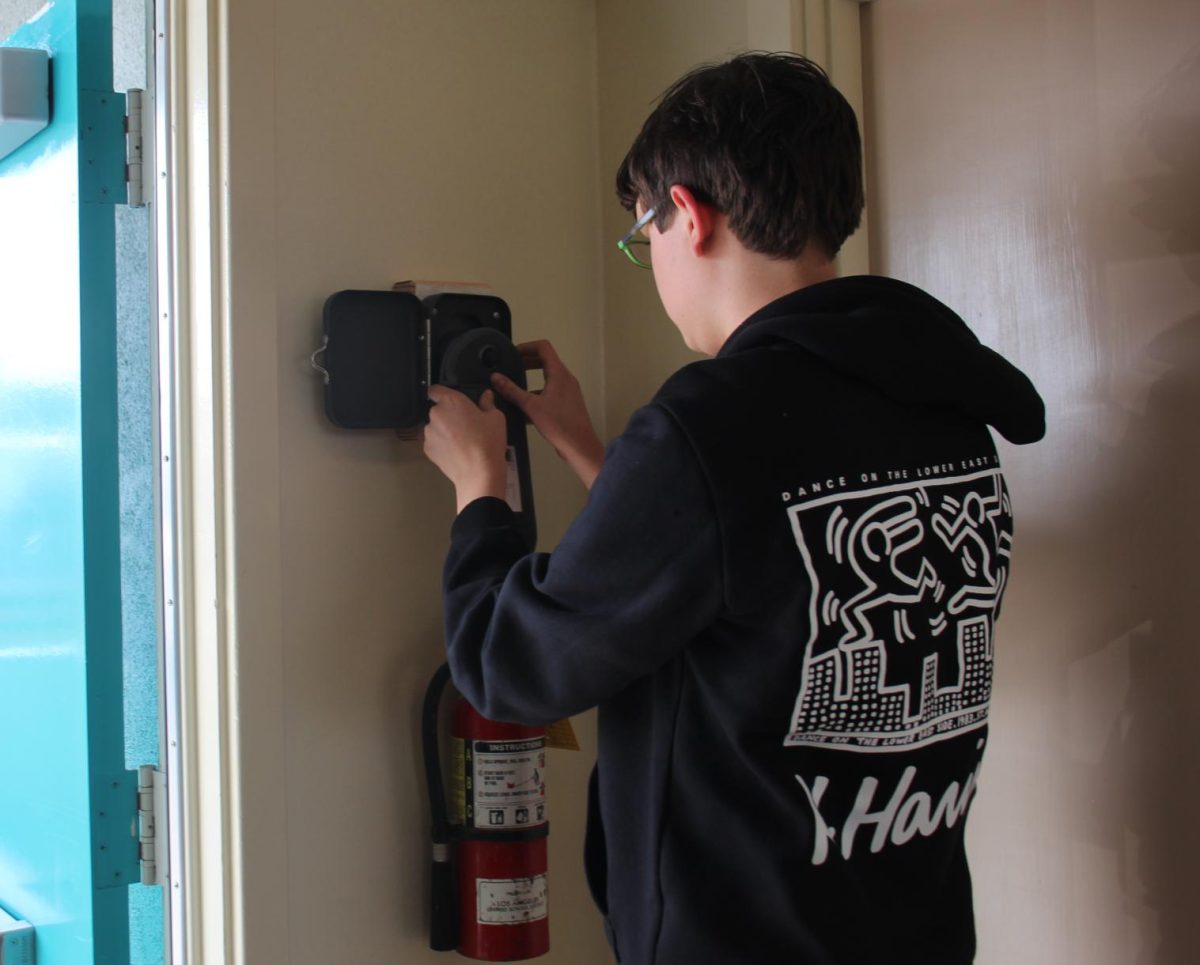Junior Leeron Nakash, who is Israeli, was very concerned about the credibility of the information she began to see after the breakout of the Israel-Hamas war on Oct. 7. The internet was quickly flooded with various posts concerning the conflict as it was documented through social media, which became a primary source of information for young people.
“I feel that there are a lot of sources that are not credible,” Nakash said. “People oftentimes will just believe that source no matter what because they are on that side. So, the first thing they see posted from a source that supports that side, they believe it.”
Social media has become a news source for many regarding the war in Gaza as well as a platform for political activism. Misinformation can easily spread because posts are often not fact-checked. Algorithms also show selected content based on a viewer’s personal interest and engagement, which can reinforce the ideas they already believe.
There has been a longstanding conflict between Israel and Palestine which intensified after Hamas, the Palestinian militant group governing the Gaza Strip, launched an attack on Israel on Oct. 7, 2023. Fighting quickly broke out following the attack and Israel launched a military campaign prompting the start of the current war in Gaza, which has resulted in over 30,000 Palestinian deaths, 70% of which are women and children. Tension over the conflict has resulted in an increase in antisemitic and Islamaphobic hate speech across social media platforms.
“The increases have been at far greater levels than what academics and researchers who monitor social media say they have seen before, with millions of often explicitly violent posts on X, Facebook, Instagram, and TikTok,” according to a Nov. 15 article in the New York Times.
Graphic images and videos have also circulated through social media showing destroyed buildings and injured or dead civilians, many of which were women and children. This can provoke an emotional response from the viewer. Palestinians have been documenting the war from Gaza and posting to different social media platforms.
“I haven’t seen any of the videos,” Nakash said. “It’s a really hard thing to watch whether you’re a Palestinian supporter or an Israeli supporter. It is a hard thing to watch for both sides, so I think for me I stopped watching them from day to day because it can have a bad effect on mental health.”
Not only are many people using social media to stay on top of the war but many are also using social media to promote boycotts against multiple brands and fast food chains that they believe support Israel. Companies had released statements in support of Israel following the Oct. 7 attack, later resulting in backlash and protests. Many have taken to social media to express their disapproval of corporate support shown toward Israel, calling people to stop purchasing from or supporting these certain brands.
The Boycott, Divestment, Sanctions movement (BDS) has been a trending topic being at the head of boycott calls for numerous brands. The movement is Palestinian-led and promotes boycotts against corporations seen having financial ties to Israel or contributing goods and services. Boycotting is a non-violent way of protest that people can participate in to raise awareness about the conflict. Major brands and companies being boycotted include Starbucks and McDonalds.
“I feel that if you want to get a point across, boycotting is definitely a way to do it,” senior Madyson Phillips said.
Hashtags such as #boycottstarbucks and #boycottisrael have been trending on platforms such as Instagram and TikTok. The TikTok creative center shows that there are 22,000 posts using the hashtag #boycottstarbucks with over 200 million views.
There is also pressure from the media for celebrities to speak out on the Israel-Hamas conflict but some are hesitant to make any sort of address in fear of receiving backlash. Some celebrities have tried to stay neutral to avoid losing followers or brand deals while others such as Bella Hadid, Emma Watson and Noah Schnapp have shared their thoughts through social media.
As the war carries on, people continue to use social media as an outlet for news consumption and voicing their opinions.
“I feel that it is interesting to see everyone’s outtake on everything,” Phillips said. “I think how they go about what they are saying can be damaging and can be a little harsh sometimes but I do think that it is important people speak about their opinions and I try not to judge people too hard.”





















